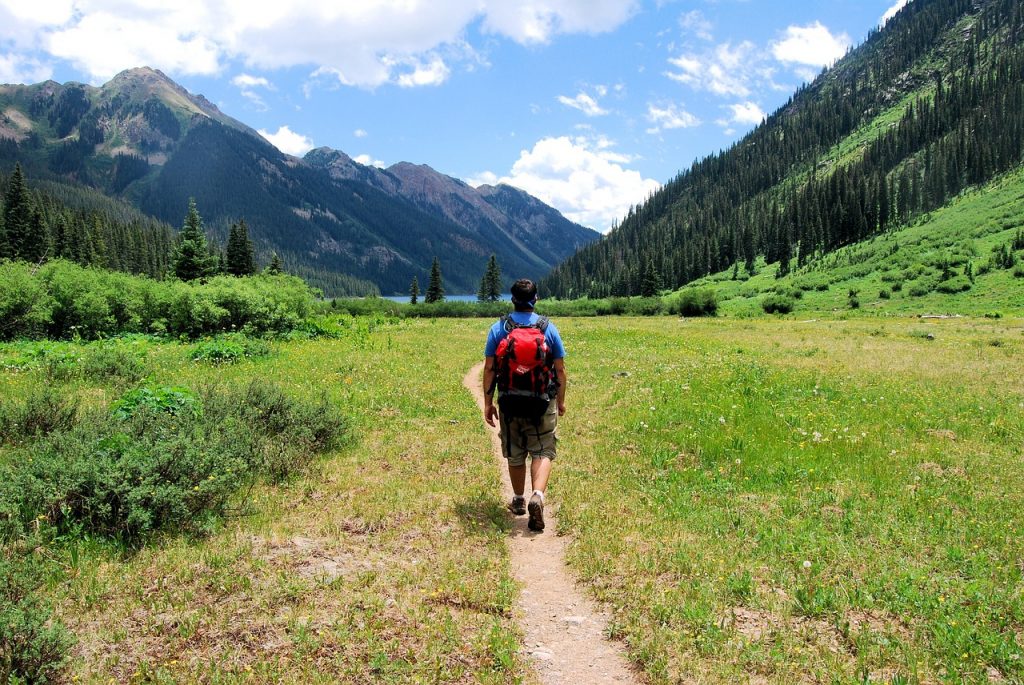Summer is here, and with it, outdoor enthusiasts everywhere are making plans to head into the wilds of America in search of adventure. If you are new to this, however, know that a good deal of planning goes into putting together a safe and awesome trek.
Below, we’ll go over a few key points you need to keep in mind before you go on a summer hike in the backcountry with your buddies.
Acquire trail-friendly food/drink
If you are heading into the bush for anything longer than an afternoon, you’re going to have to pack food in with you. However, it is impractical to take a cooler loaded down with the groceries you would normally buy if you were camping in the front country.
Instead, you’ll want to pack in dry foods like pasta, noodles, and dehydrated meals which reanimate into an edible state with a bit of water. This will keep weight down and spoilage to a minimum.
As for drinks, carry in several large bottles at the start of your trek, but know that beyond the first day or two, you’ll have to purify additional H2O from sources in the wild. This can be done using purification tablets, boiling water for 10 minutes or more, or making use of a LifeStraw.
Feel free to bring in some adult beverages as well, but consume them responsibly – there is nothing worse than going on a hike in the backcountry while hungover.
Account for allergies

The backcountry of America is a gorgeous and wonderfully fragrant place during the spring and summer months, as the scent of pine and wildflowers hangs heavy in the air. What is delightful for some, it can be a nightmare for others, as the pollen these plants release can wreak havoc on the sinuses of those who are allergic.
If you are among the unfortunate who suffer from seasonal allergies, don’t let them keep you from experiencing the beauty of the backcountry. Instead, try using a Dymista nasal spray – this anti-histamine works to reduce swelling within your nasal passages, allowing you to breathe free and easy even when the yellow stuff is at its worst.
When paired with wrap-around sunglasses (to keep pollen out of your eyes), the odds of your allergies ruining your backcountry trek can be greatly reduced.
Carry bear deterrents
Even if you are not adversely affected by pollen, there are other threats you need to consider – namely, bears. Let’s clear the air on this subject – these creatures are just as scared of you as you are of them. However, if spooked, or if you unknowingly step between a mother and her cubs, they may get aggressive towards you.
Counter this threat by carrying bear deterrents with you while on a hike in the backcountry. This includes items like bear bells, which create noise which alerts them to your presence, and bear bangers, which shoots a firecracker, creating a loud bang which should scare away most threatening animals.
Should this fail, have bear spray at the ready. Loaded with insanely hot oleoresin capsicum, the extreme burning sensation it produces will stop a charging grizzly in its tracks.
The legality of the last two items can vary by jurisdiction, so read up on all local laws before ordering these items on Amazon.
Pack appropriate clothing, including warm and waterproof items

The weather can turn on a dime in the backcountry. As such, it is vital to pack in clothes which will keep you warm and dry. Leave anything made of cotton at home – this material absorbs water and sweat like a sponge, putting you at risk for hypothermia the second things go south.
Think wool, polyester, nylon – these materials will keep you warm, and they will resist or repel rain. Wear a base layer which wicks away moisture from your body, have an additional layer for cold mornings, and keep a waterproof jacket rolled up in your pack that you can take out easily at a moment’s notice.
Inform a trusted contact of your plans
Communications technology has gotten better as the years have gone by, but there are places where cell signals still don’t reach. Knowing this, it is vital to file a hiking plan with friends, family, and/or a park ranger.
This way, if your SPOT malfunctions and there is no cell service where you fall and break your leg, someone will eventually call for help when you don’t arrive home from your hike in the backcountry.

